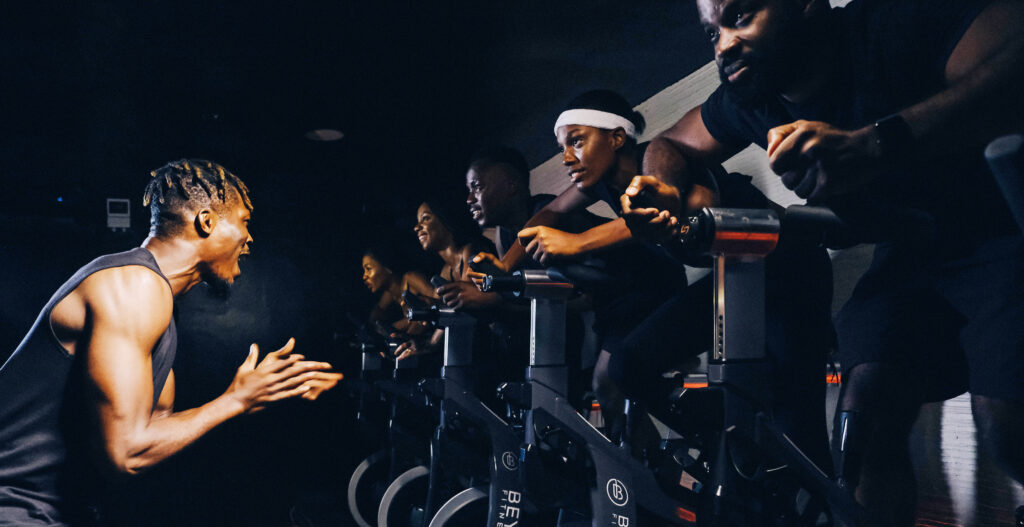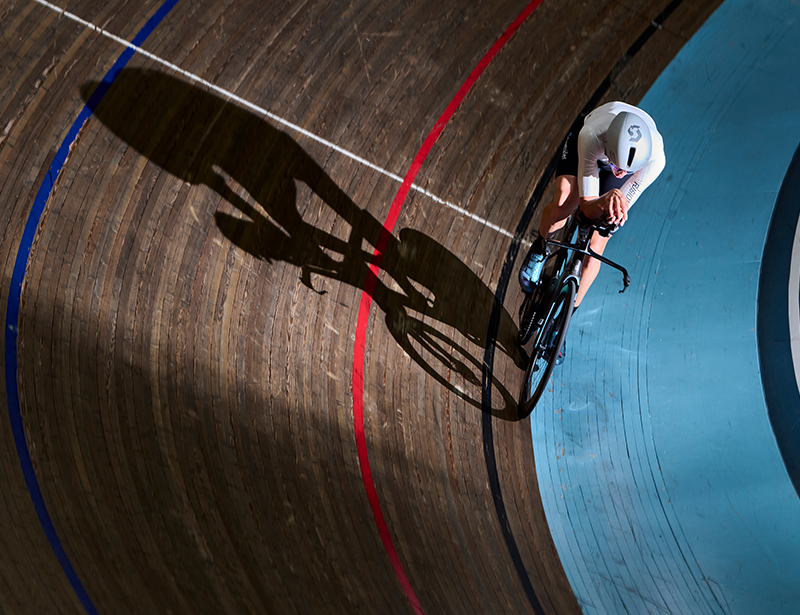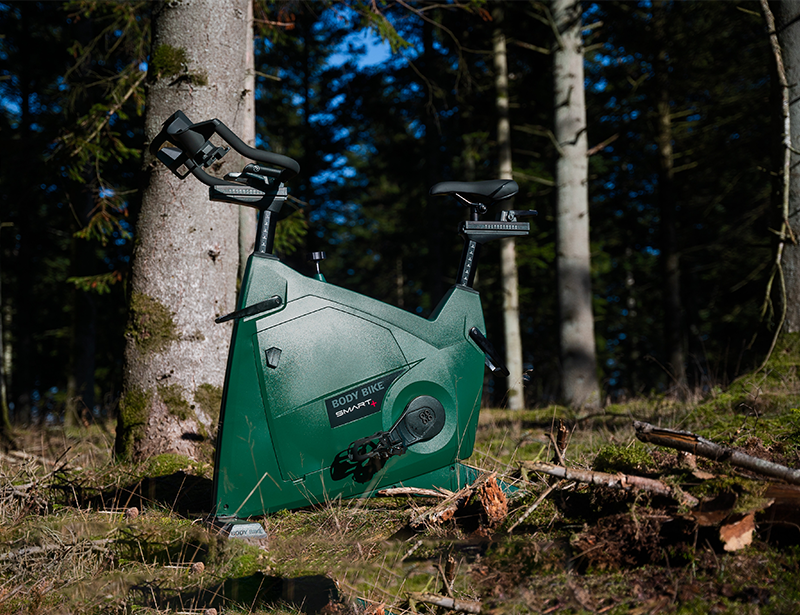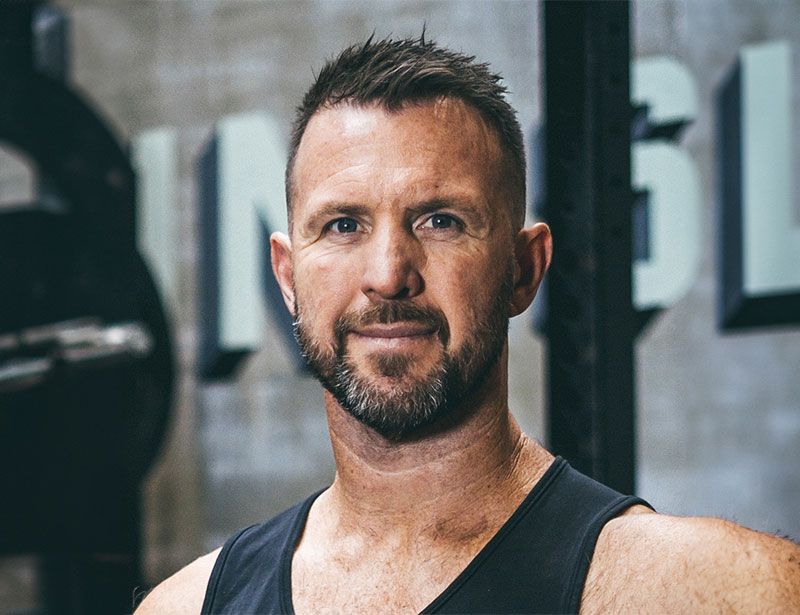Panellist, Sustainability
Heading off-grid

Our latest edition of RIDE HIGH includes a must-read supplement – A Global Crisis? – in which we speak to operators across Europe, Asia-Pacific, Africa and the Americas to understand the region-by-region challenges facing the fitness sector at the moment, and the strategies that might be deployed to navigate them.
Check out all our expert comments here or download a PDF of the full magazine, including the supplement, above.
Here, we share the perspective of Simi Williams, founder of Beyond Fitness in Nigeria. Interview conducted 25 October 2022.
We’re experiencing record inflation in Nigeria: double digits across the board, with food and power taking up a higher proportion of people’s monthly budgets. Our culture is to push on through – communities supporting each other rather than expecting relief from the government – yet there’s no getting around the pressure on disposable income right now. Everyone’s feeling the pinch and being very careful with energy usage and food wastage.
Our currency also continues to devalue against the dollar. This combination of inflation and depreciation means international costs and overheads – replacement equipment or lockers, for example, which are always priced in US$ – have tripled in the past year.
Meanwhile, flooding in various parts of the country, including large areas of farmland, is contributing to unemployment, transportation and logistics issues and high food prices, where inflation has reached 23 per cent or more.
“Nigeria has never generated enough electricity. People traditionally used diesel generators to make up the deficit, but diesel prices are up 70%”
So it’s the perfect storm right now, but then consider that Nigeria has never generated enough electricity to meet national requirements. We’ve only ever generated around 3.5GW, which is 10 per cent of what the country needs. People have traditionally used diesel generators to make up the 90 per cent deficit, but with the war in Ukraine, diesel prices are up 70 per cent in 2022 alone – something nobody could have expected or budgeted for.
Many businesses in Nigeria are therefore looking to renewable energy to reduce their diesel use. Fortunately, when we built Beyond Fitness, we incorporated a solar inverter and battery system as a back-up. When everything is on in the club, the power load is 45kW. However, during our off-peak periods, we can reduce the power load from the building to 12kW, which is our peak solar capacity. This still powers all our critical equipment.
Our fitness equipment isn’t powered – our bikes, strength room and barre room – so our energy usage is mainly down to cooling costs. For this reason, we’re now being particularly mindful of class times and utilisation rates. We previously had a mid-morning class and were looking to add a lunchtime one, but we can’t meet the cooling costs at these hotter times of day with solar power alone. It just isn’t possible to spec our system to do all the air conditioning. These class times therefore became non-viable, especially given they might only have been 40 per cent full.

Instead, we’ve worked hard to optimise very early morning and evening classes, getting utilisation rates as high as possible. These times suit our working professional community and I’m hugely grateful for the way they’ve embraced the change. They see Beyond as a place of solace in the face of general uncertainty, are willing to spend on the value we offer, and have supported each other to make the new class times a habit.
We’ve added outdoor classes too, and indoors only use air conditioning where and when necessary. In our changing rooms, for example, we turn it on just before the end of class and leave it on for about an hour after class. Our lighting, air con, hot water for showers… it’s all carefully scheduled around our class timetable and usage data, and this is saving us a lot of money. We’ve also changed team deployment to productively use the new down-time at the club.
Finally, we’re looking to increase our solar capacity. We’re restricted by how much we can put on our roof, but we are considering more solar panels and batteries to generate and store more energy. The more we can go off-grid, mitigating the rising cost of diesel by harvesting solar power, the better.

Conceived, powered and funded by BODY BIKE®, RIDE HIGH has a simple mission: to celebrate and champion the very best of indoor cycling, sharing ideas, stories and experiences from around the world to inspire the sector on to even bigger and better things. Subscribe for free by leaving your details below and we'll send indoor cycling's hottest news direct to your inbox three times a year.






